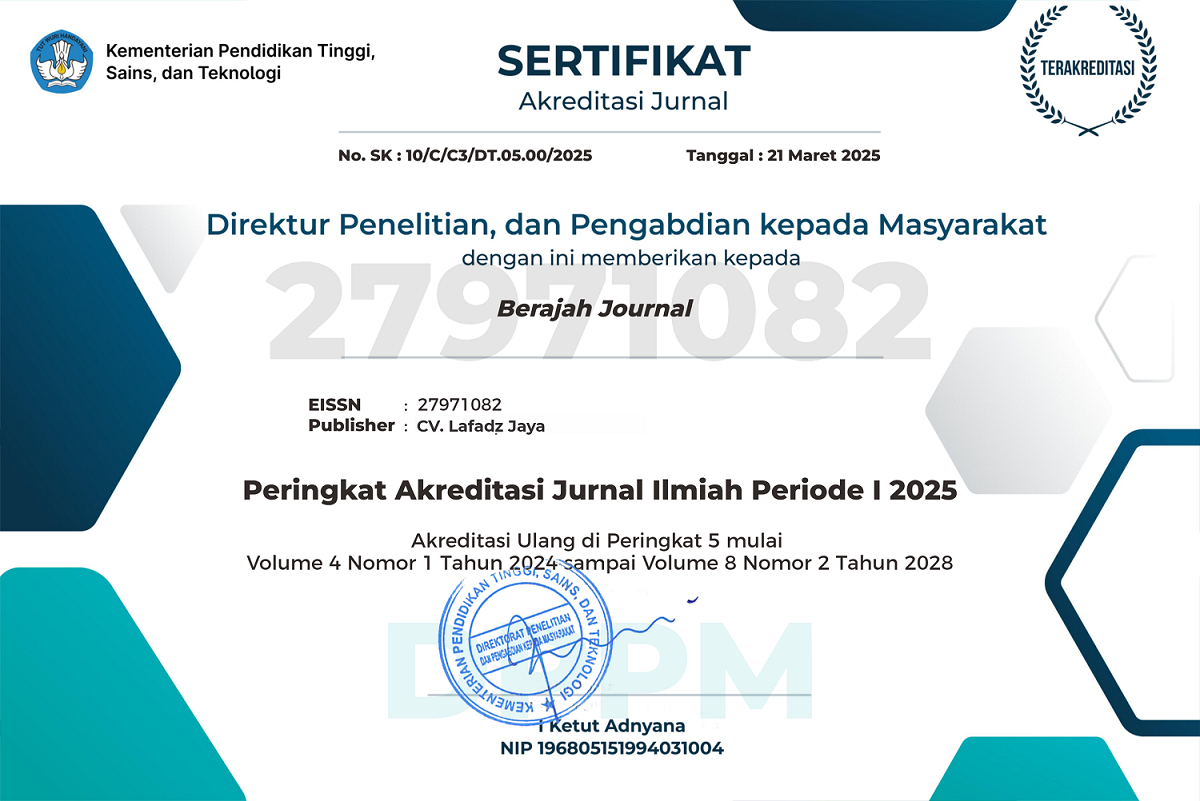STRATEGI KOMUNIKASI PEMASARAN MELALUI BAHASA IKLAN: STUDI KASUS GREEN HOST HOTEL
DOI:
https://doi.org/10.47353/bj.v4i9.480Keywords:
Strategy, Marketing, Green Hotel, Advertising LanguageAbstract
Marketing is an important aspect in the success of a business, including in the hotel industry. In an effort to promote their products or services, hotels need to develop an effective marketing communications strategy. One strategy that can be used is through advertising language. Green Host Hotel is an example of a hotel that offers an environmentally friendly concept. This concept emphasizes sustainable and environmentally responsible business practices. In an effort to market itself, Green Host hotels use advertising language aimed at target markets who are sensitive to environmental issues and want to stay in environmentally friendly hotels. However, even though the Green Host hotel has adopted a marketing communication strategy through advertising language, there has been no research that specifically examines the effectiveness of this strategy in attracting interest and influencing consumer behavior. Therefore, this research aims to analyze marketing communication strategies through advertising language used by Green Host hotels and identify the extent of the effectiveness of these strategies in influencing consumer perceptions and decisions.
Downloads
References
Ariyoga, I. N. (2020). Peranan Organisasi Sekaa Teruna Teruni Sebagai Media Komunikasi Kepemudaan Hindu. Ganaya: Jurnal Ilmu Sosial Dan Humaniora, 2(2–3), 113–121.
Arnett, D. B., & Laverie, D. A. (2020). Green marketing and hospitality industry: The influence of sustainability programs on consumer behavior. International Journal of Hospitality Management, 89, 102477. https://doi.org/10.1016/j.ijhm.2020.102477
Chen, H., Bernard, S., & Rahman, I. (2019). Greenwashing in hotels: A structural model of trust and behavioral intentions. Journal of Cleaner Production, 206, 326–335. https://doi.org/10.1016/j.jclepro.2018.09.168
Goleman, D. (2006). Emotional Intelligence: Why It Can Matter More Than IQ. Bantam Books.
Kang, E. Y., & Atkinson, L. (2021). Effects of message objectivity and focus on green CSR communication: The strategy development for a hotel’s green CSR message. Journal of Marketing Communications, 27(3), 229–249. https://doi.org/10.1080/13527266.2019.1640270
Kotler, P., & Keller, K. L. (2016). Marketing Management (15th ed.). Pearson Education.
Lee, Y., & Choi, K. (2020). The impact of green marketing on consumer behavior: A study of eco-friendly hotels. Sustainability, 12(14), 5783. https://doi.org/10.3390/su12145783
Maignan, I., & Ferrell, O. C. (2021). Corporate social responsibility and marketing: An integrative review and future research agenda. Journal of the Academy of Marketing Science, 49(1), 1–19. https://doi.org/10.1007/s11747-020-00734-x
Malik, A. D., & Amalina, I. K. (2023). Penyuluhan kepemimpinan berbasis nilai, perpaduan antara etika dan efektivitas: Desa Sepala Dalung, Kabupaten Tana Tidung. Jurnal Pengabdian Masyarakat Paguntaka, 1(3), 91-98.
Rahman, I., Park, J., & Chi, C. G. (2015). Consequences of “greenwashing.” International Journal of Contemporary Hospitality Management, 27(6), 1054–1081. https://doi.org/10.1108/IJCHM-04-2014-0202
Rosenbaum, M. S., & Wong, I. A. (2015). Green marketing programs as strategic initiatives in hospitality. Journal of Services Marketing, 29(2), 81–92. https://doi.org/10.1108/JSM-07-2013-0167
Schmeltz, L. (2021). CSR communication and consumer behavior: How green marketing and CSR policies affect consumer trust and purchase intentions. Corporate Social Responsibility and Environmental Management, 28(2), 401-410. https://doi.org/10.1002/csr.1987
Silviani, I. (2020). Public relations sebagai solusi komunikasi krisis. Scopindo Media Pustaka.
Tan, K., & Lee, J. (2021). Green branding in the hospitality industry: A case study of eco-friendly hotels. Journal of Hospitality and Tourism Management, 46, 103–114. https://doi.org/10.1016/j.jhtm.2021.05.001
Terry, C., & Lee, P. (2021). The impact of sustainability certification on hotel booking intentions. Tourism Management Perspectives, 37, 100771. https://doi.org/10.1016/j.tmp.2020.100771
Vargo, S. L., & Lusch, R. F. (2017). Service-dominant logic: An introduction and overview. In The Service-Dominant Logic of Marketing (pp. 3–13). Routledge.
Yukl, G. (2013). Leadership in Organizations (8th ed.). Pearson Education.
Zhao, X., & O'Neill, M. A. (2020). The influence of sustainability practices on customer satisfaction in hotels. International Journal of Hospitality Management, 87, 102473. https://doi.org/10.1016/j.ijhm.2020.102473
Bigné, E., & Andreu, L. (2020). Green marketing and corporate social responsibility: The impact on consumer behavior. European Journal of Marketing, 54(10), 2301-2320. https://doi.org/10.1108/EJM-06-2019-0532
Pereira, A. I., & Oliveira, M. (2021). The role of greenwashing in sustainable marketing. Sustainable Development, 29(2), 267-282. https://doi.org/10.1002/sd.2214
Downloads
Published
How to Cite
Issue
Section
License
Copyright (c) 2024 Ni Putu Isha Aprinica, Luh Eka Susanti, Anak Agung Ayu Arun Suwi Arianty, Ni Made Yuni Kusumadewi, Putu Ariel Artha Indrayana

This work is licensed under a Creative Commons Attribution 4.0 International License.






















